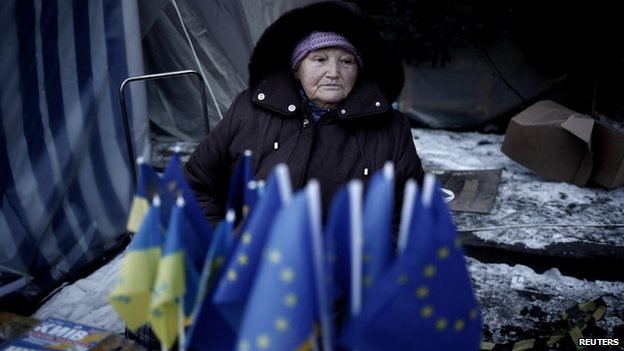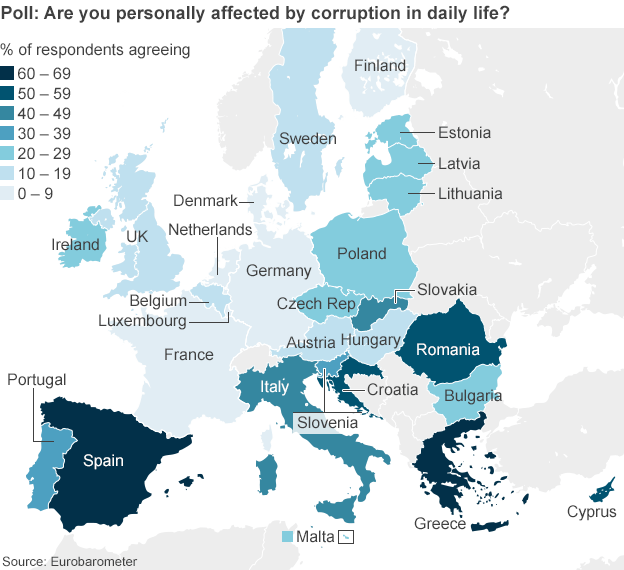Nowadays the economical crisis in European countries is the top and the highest discussed issue in mass media. Greece, Italy, Portugal
who is the next one?
However, in such situation, the European elite is considering ability to give a chance to some different countries. The matter is about EU Ukraine trade negotiations. For Ukraine it is new levels of trade, investment and growth and new kinds of economic freedom. So, what benefits will Europe receive?
First of all it needs to draw attention that joining Free Trade Area is a part of the Association Agreement: the Association Agreement could be the first of its kind under the European Neighborhood Policy. Meanwhile two controversial questions in EU-Ukraine relationship are faced: profitable trade partnership and political issue dealing with democracy violations. The great resonance was caused by the sentence of Ukrainian former Prime Minister, Julia Timoshenko.
The EU leaders raised concerns as to this verdict regarding it as a political move and expressed negative reaction. According to the President of the European Parliament Jerzy Buzek, strengthening the rule of law and a credible fight against corruption are essential not only for the conclusion of the Association Agreement by the end of the year and the deepening of EU-Ukraine relations, but also for the consolidation of democracy in Ukraine. He urged Ukraine to uphold the principles and common values that form the core of the Eastern partnership.
In turn, the High Representative foe Foreign Affairs and Security Policy Catherine Ashton declared that Association Agreement is not conceived as a gift to Ukraine, or a gift to the EU. It is envisaged as a mutually beneficial contract sharing European values and standards, opening markets, modernizing and diversifying the Ukrainian economy and entrenching the rule of law and fundamental freedoms.
What kind of Agreement is that? A deal that will be a key for integration of economies, creation of new opportunities both for Ukrainian and European operators in all sectors of the economy. In short, this agreement offers a pathway to Ukraine's future prosperity. Support of eastern neighbors is to help them up the ladder to growth, to develop trade relations, and Free Trade Areas have been an instrument of choice in supporting partners' growth, throughout the world.
For example, in order to be exported towards the EU, Ukraine's dairy and meat products have to pay tariff duties but maybe more importantly to meet certain sanitary standards. It's all very well abolishing those tariff duties but if we don't help Ukrainian exporters meet the EU sanitary standards for milk or beef for example, then there will be no actual trade in those products.
So, in this agreement Europe will tackle such issues: Ukrainian laws and standards will become compatible with those of the European Union in trade-related areas. This is a very important chapter of approximation of legislation.
This means that Ukrainian manufacturers will meet EU norms and standards simply by respecting Ukraine's own rules and regulations. Coupled with the abolition of import duties already mentioned, this means that the barriers and costs of accessing the EU, the largest market in the world, could be swept aside.
The coverage of this trade package within the Association Agreement with Ukraine will also be exceptionally broad including issues like the rules on public purchasing or on competition. This means that the laws, standards and eventually also practices on government procurement and competition will be sufficiently similar in the Ukraine to the ones of the EU. In negotiating this type of deal, the EU is making an unprecedented offer of deep integration with its own market. The aim is creation of a modern, transparent and predictable environment for consumers, investors and business people in both markets.
In the European Parliament it should be reminded this trade relations operate in the broader political context of overall relationship with Ukraine so that recent developments in Kiev have put all negotiations into question. But as High Representative Ashton said they should not walk away and should continue talking. Their offer of concluding the trade negotiations as part of the Association Agreement with Ukraine should remain on the table.
It is really important, that in the face of economic challenges, Europe has the courage and confidence not to retreat into the false security of protectionist tendencies. Not for us the cold comfort of closed markets because all we know the risks that this runs. Instead we are outward looking and opening opportunities through trade.
So, the trade negotiations with Ukraine are a perfect example of a win-win outcome. The deep and comprehensive free trade area, envisaged in the context of the Association Agreement, will be of mutual economic benefit both to the EU and Ukraine. It will open each others' markets, it would modernize and diversify Ukraine's economy, and, most important of all, it will be a milestone in sharing common European values and standards; and in the coming days or weeks the political context can be created for this deal to materialize.
Winfried Schneider-Deters for 30 years served as director of various bilateral and regional cooperation projects of Friedrich Ebert Foundation in South America, South Korea, Eastern Germany, Central Asia and in the Southern Caucasus and, from 1996 to 2000, in Ukraine. In Germany, he is a frequent commentator on contemporary Ukrainian affairs.
However, in such situation, the European elite is considering ability to give a chance to some different countries. The matter is about EU Ukraine trade negotiations. For Ukraine it is new levels of trade, investment and growth and new kinds of economic freedom. So, what benefits will Europe receive?
First of all it needs to draw attention that joining Free Trade Area is a part of the Association Agreement: the Association Agreement could be the first of its kind under the European Neighborhood Policy. Meanwhile two controversial questions in EU-Ukraine relationship are faced: profitable trade partnership and political issue dealing with democracy violations. The great resonance was caused by the sentence of Ukrainian former Prime Minister, Julia Timoshenko.
The EU leaders raised concerns as to this verdict regarding it as a political move and expressed negative reaction. According to the President of the European Parliament Jerzy Buzek, strengthening the rule of law and a credible fight against corruption are essential not only for the conclusion of the Association Agreement by the end of the year and the deepening of EU-Ukraine relations, but also for the consolidation of democracy in Ukraine. He urged Ukraine to uphold the principles and common values that form the core of the Eastern partnership.
In turn, the High Representative foe Foreign Affairs and Security Policy Catherine Ashton declared that Association Agreement is not conceived as a gift to Ukraine, or a gift to the EU. It is envisaged as a mutually beneficial contract sharing European values and standards, opening markets, modernizing and diversifying the Ukrainian economy and entrenching the rule of law and fundamental freedoms.
What kind of Agreement is that? A deal that will be a key for integration of economies, creation of new opportunities both for Ukrainian and European operators in all sectors of the economy. In short, this agreement offers a pathway to Ukraine's future prosperity. Support of eastern neighbors is to help them up the ladder to growth, to develop trade relations, and Free Trade Areas have been an instrument of choice in supporting partners' growth, throughout the world.
For example, in order to be exported towards the EU, Ukraine's dairy and meat products have to pay tariff duties but maybe more importantly to meet certain sanitary standards. It's all very well abolishing those tariff duties but if we don't help Ukrainian exporters meet the EU sanitary standards for milk or beef for example, then there will be no actual trade in those products.
So, in this agreement Europe will tackle such issues: Ukrainian laws and standards will become compatible with those of the European Union in trade-related areas. This is a very important chapter of approximation of legislation.
This means that Ukrainian manufacturers will meet EU norms and standards simply by respecting Ukraine's own rules and regulations. Coupled with the abolition of import duties already mentioned, this means that the barriers and costs of accessing the EU, the largest market in the world, could be swept aside.
The coverage of this trade package within the Association Agreement with Ukraine will also be exceptionally broad including issues like the rules on public purchasing or on competition. This means that the laws, standards and eventually also practices on government procurement and competition will be sufficiently similar in the Ukraine to the ones of the EU. In negotiating this type of deal, the EU is making an unprecedented offer of deep integration with its own market. The aim is creation of a modern, transparent and predictable environment for consumers, investors and business people in both markets.
In the European Parliament it should be reminded this trade relations operate in the broader political context of overall relationship with Ukraine so that recent developments in Kiev have put all negotiations into question. But as High Representative Ashton said they should not walk away and should continue talking. Their offer of concluding the trade negotiations as part of the Association Agreement with Ukraine should remain on the table.
It is really important, that in the face of economic challenges, Europe has the courage and confidence not to retreat into the false security of protectionist tendencies. Not for us the cold comfort of closed markets because all we know the risks that this runs. Instead we are outward looking and opening opportunities through trade.
So, the trade negotiations with Ukraine are a perfect example of a win-win outcome. The deep and comprehensive free trade area, envisaged in the context of the Association Agreement, will be of mutual economic benefit both to the EU and Ukraine. It will open each others' markets, it would modernize and diversify Ukraine's economy, and, most important of all, it will be a milestone in sharing common European values and standards; and in the coming days or weeks the political context can be created for this deal to materialize.
Winfried Schneider-Deters for 30 years served as director of various bilateral and regional cooperation projects of Friedrich Ebert Foundation in South America, South Korea, Eastern Germany, Central Asia and in the Southern Caucasus and, from 1996 to 2000, in Ukraine. In Germany, he is a frequent commentator on contemporary Ukrainian affairs.




